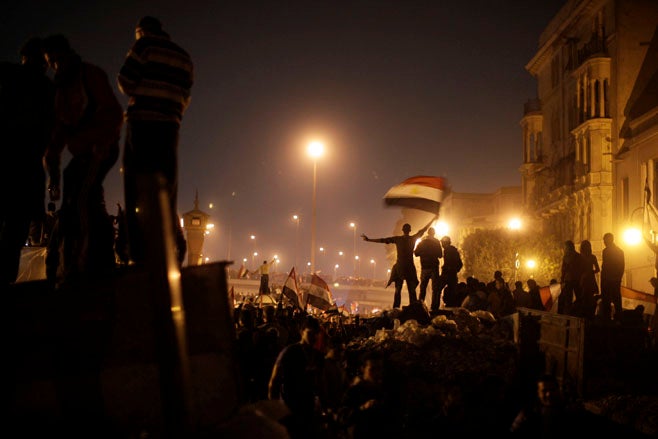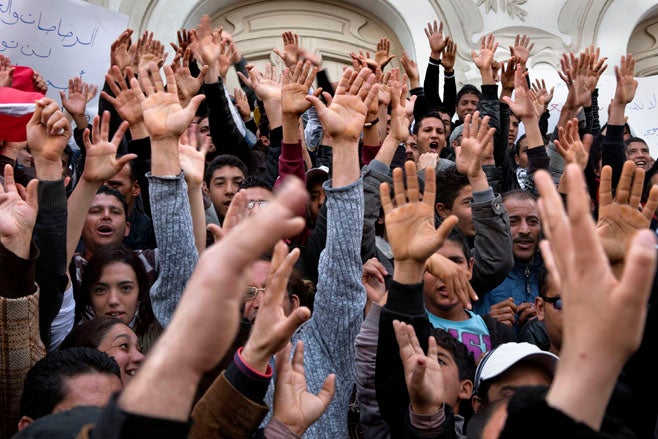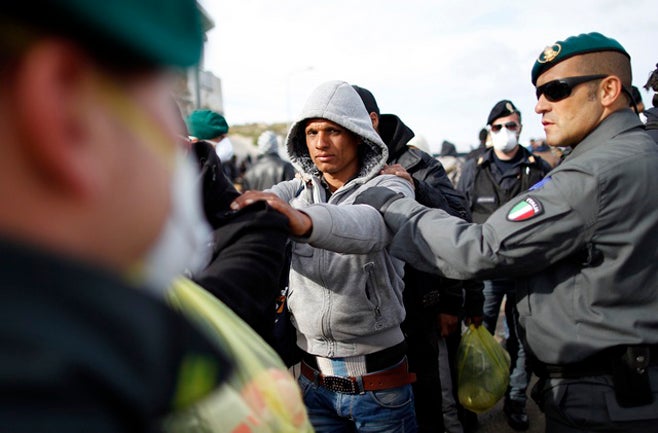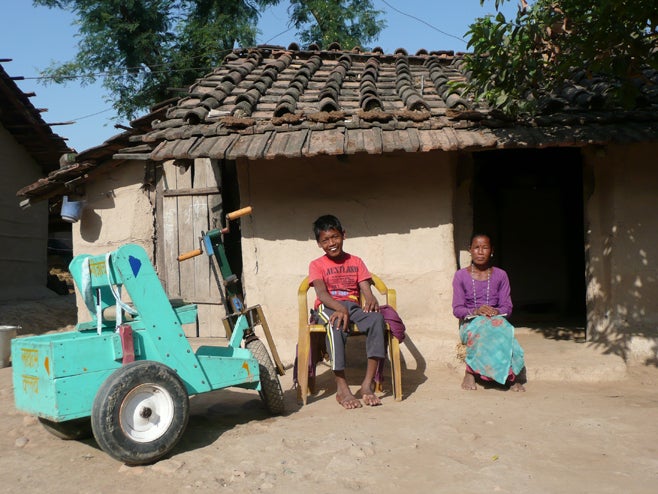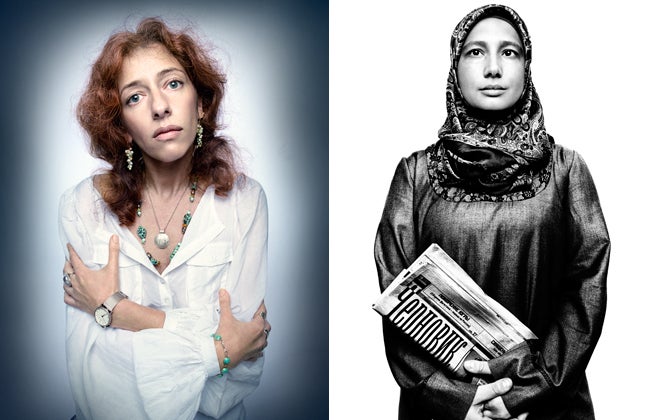The human rights situation in Tajikistan remains poor. The government persisted with enforcing a repressive law on religion and introduced new legislation further restricting religious expression and education. Authorities continued to restrict media freedoms and journalists—including BBC correspondent Urunboy Usmonov—were targeted for their work. Domestic violence against women remains a serious problem in Tajik society. The judiciary is neither independent nor effective.
In August President Emomali Rahmon signed a wide-ranging amnesty into law to mark the 20th anniversary of Tajikistan’s independence. Approximately 15,000 prisoners are reported to be covered under its terms, including alleged members of banned religious and political groups; several thousand prisoners are expected to be released in 2011.
Institutional Human Rights Reform
In May the Office of the Ombudsman presented its first human rights report since Zarif Alizoda, the president's former legal adviser, was appointed ombudsman in May 2009. The report covers the office’s work from September 2009 to December 2010, and provides an overview of various human rights concerns in Tajikistan, including torture, freedom of speech, housing, and children’s rights. Some local human rights groups have criticized the office for lacking political will to effectively respond to human rights violations.
Criminal Justice and Torture
Torture remains an enduring problem within Tajikistan’s penitentiary system and is used to extract confessions from defendants, who are often denied access to family and legal counsel during initial detention. Despite discussions with the International Committee of the Red Cross (ICRC) in August, authorities have not granted ICRC access to places of detention. With rare exceptions, human rights groups are also denied access.
While torture is practiced with near impunity, authorities took a few small steps to hold perpetrators accountable. In an unprecedented ruling in September two law enforcement officers were sentenced to eight years in prison (reduced to six years under amnesty) on charges of “deliberate infliction of bodily harm carelessly resulting in the death of a victim” and “abuse of powers,” after Ismoil Bachajonov, 31, died in police custody in Dushanbe, the capital, in January. A third officer was sentenced to three years in prison on charges of “negligence,” but was released under amnesty.
NGOs and local media also reported on the deaths of Safarali Sangov, 37, who was detained on March 1 on alleged drug-related charges and died in a hospital several days later, and of Bahromiddin Shodiev, 28, who was detained on October 14 and died in a hospital on October 30. Police claim that Sangov and Shodiev each tried to commit suicide at the police station, but their respective families insist that each died after sustaining injuries during beatings while in custody. In early November a Ministry of Internal Affairs spokesperson announced that there would be a “thorough investigation” into Shodiev’s death and that three officers had been dismissed. Following Sangov’s death two policemen were charged with “negligence.” Soon after the trial began in September the judge ordered that the case undergo further investigation.
In July Ilhom Ismanov and 52 other defendants were put on trial in Khujand for alleged membership in the Islamic Movement of Uzbekistan. Amnesty International reported that during a pre-trial detention hearing on November 12, 2010, the judge ignored Ismanov’s testimony that he had been tortured, including with electric shocks and boiling water, and that other defendants have since made similar allegations of torture and ill-treatment in pre-trial detention.
Freedom of Media
The clampdown on Tajikistan’s media continued in 2011. Government officials continued to file debilitating defamation civil suits that seem aimed at muffling media. Reporters Without Borders said in February that Tajik authorities “are using a range of methods in an attempt to control the media, including informal and financial pressure, an increase in the number of defamation suits and arbitrary arrest.” According to media watchdog Article 19, a new draft mass media law needs further amendments before it complies with international standards on freedom of expression.
In January then-chief of the Sughd Regional Department of Fighting Organized Crime (UBOP) filed a lawsuit against the weekly Asia Plus for 1 million somoni (US$210,000) in moral damages, after a December 2010 article described alleged torture and ill-treatment by UBOP officers in the Sughd region. In April, authorities confiscated equipment from Paykon newspaper in connection with a 2010 libel suit. In May, after a Dushanbe court granted the Ministry of Justice’s petition to liquidate Paykon’s founding organization for alleged violations, printing houses refused to print the paper, forcing itto close.
In October Mukhamadyusuf Ismoilov, a journalist detained in the Sughd region on November 23, 2010, was convicted and fined 35,000 somoni ($7,300) on charges of inciting national, racial, local, or religious hostility; defamation; insult; and extortion. He was released under amnesty, but banned from journalism for three years. His colleagues believe his arrest and prosecution are retribution for his critical articles, including in Nuri Zindagi, an independent weekly in Dushanbe.
On February 7 Khikmatullo Saifullozoda, the editor of opposition Islamic Renaissance Party of Tajikistan newspaper Nadjot, was beaten outside his home in Dushanbe by unidentified assailants and was hospitalized. The United States and European Union “strongly condemn[ed]” the attack. Authorities opened a criminal investigation but no one has been held accountable.
On June 13 veteran BBC journalist Usmonov was detained on charges of membership to the banned religious organization Hizb ut-Tahrir, but released on bail after an international outcry. Authorities persisted in prosecuting Usmonov on charges of complicity in the activities of a banned religious extremist organization, and on October 14 he was sentenced to three years in prison, but released under amnesty. At his trial, Usmonov testified that he had been tortured in pre-trial detention. He denied the charges against him, explaining that his contact with the group was part of his work.
Freedom of Religion
Tajik authorities further tightened restrictions on religious freedoms, and pursuant to newly adopted legislation, the government now extends far reaching controls over religious education and worship. According to a June statement by Forum 18, authorities continue “to try to suppress unregistered Muslim education throughout the country” and “have brought administrative charges against at least fifteen Muslim teachers in three different regions.” Authorities have also closed unregistered mosques.
On August 2 President Rahmon signed the highly controversial Parental Responsibility Law, stipulating that parents must prevent their children from participating in religious activity, except for state-sanctioned religious education, until they reach 18-years-old. Human rights groups, religious groups, and international bodies criticized the adoption of the law. In June the government passed amendments to the already restrictive 2009 religion law requiring students who wish to study at religious institutions abroad to first obtain state permission.
Under the pretext of combating extremist threats, Tajikistan continues to ban several peaceful minority Muslim groups. Christian minority denominations, such as Jehovah’s Witnesses, are similarly banned. Local media continued to report on prosecutions of alleged members of Hizb ut-Tahrir and the Jamaat Tabligh movement.
Women’s Rights
Women and girls in Tajikistan continue to face gender-based discrimination and domestic violence; violence in the home impacts women and children alike. On July 28 the United Nations Women Office in Tajikistan hosted National Public Hearings with various stakeholders on the draft law on domestic violence, which has been under discussion for many years. At the hearing, participants raised concerns about the growing number of domestic violence cases in Tajikistan, and stated their plan to submit recommendations to further strengthen the law, according to news reports.
Key International Actors
The UN Human Rights Council’s first Universal Periodic Review of Tajikistan took place in October and resulted in a number of key recommendations.Tajikistan committed to combat domestic violence, prevent abusive child labor, bring the definition of torture in line with the Convention Against Torture, and prevent and investigate alleged cases of torture. However, Tajikistan rejected key recommendations on religious freedom, such as revising the new Parental Responsibility Law, and left those related to media freedom pending until March 2012.
During a European tour in June, President Rahmon met with EU officials to discuss investment and bilateral cooperation in key areas including energy and security. Human rights concerns were featured in some of the meetings, including with Council of Europe Secretary General Thorbjorn Jagland and then-chairwoman of the European Parliament’s Human Rights Subcommittee Heidi Hautala.
The EU held human rights dialogues with Tajikistan in February and October, but per established practice, did not make public any concrete results yielding from these exchanges, stating only that it had discussed human rights developments and recommendations on the right to a fair trial, judicial independence, and women’s rights. A July civil society seminar organized by the EU in Dushanbe focused on labor migrants’ rights and resulted in recommendations submitted to the Tajik government.
The US held its second Annual Bilateral Consultations with Tajikistan in April. According to a US embassy statement, Assistant Secretary of State Robert Blake raised human rights and freedom of media concerns during a meeting with President Rahmon, and met with representatives of political parties and civil society.The US made a number of critical statements on media and religious freedoms in Tajikistan over the year, including by US Secretary of State Hillary Clinton during an October visit to Dushanbe. On March 3, US Ambassador to the OSCE Ian Kelly identified Tajikistan as a government that “cite[s] concerns about political security as a basis to repress peaceful religious practice.”
